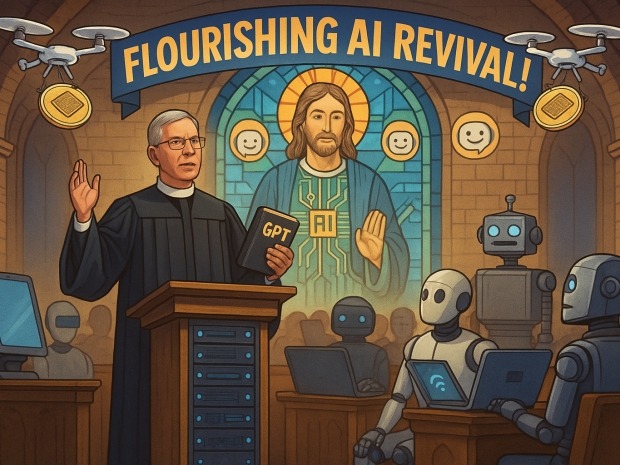Three months after being forced out of Intel and sued by shareholders, Gelsinger has re-emerged as executive chair and head of technology at Gloo, a Colorado-based outfit building what he calls the “faith ecosystem.” Think Salesforce for churches, complete with AI assistants and chatbots to automate pastoral duties and sermon logistics.
The former Chipzilla chief, now armed with a $110 million war chest, says his mission is to push “Christian-aligned AI” into Silicon Valley, the corridors of power in Washington and beyond.
“My life mission has been [to] work on a piece of technology that would improve the quality of life of every human on the planet and hasten the coming of Christ’s return,” he told reporters.
Gloo claims to serve over 140,000 faith, ministry and non-profit leaders, a decent flock, but still microscopic compared with the hundreds of millions using mainstream AI systems every week.
Around 800 million people use ChatGPT alone, and that’s before counting rivals like Claude and Grok.
To stand out, Gelsinger has launched what he calls the “Flourishing AI” initiative. It’s a kind of moral scorecard that measures whether leading large language models are a “force for good” based on seven human welfare variables. The project borrows from Harvard’s Human Flourishing Program, giving tech giants a divine performance review.
According to Gloo’s early assessments, models such as Grok 3, DeepSeek-R1 and GPT-4.1 score well, averaging 81 out of 100, when helping with practical issues like finance. But they tumble to roughly 35 out of 100 on “Faith,” the category that tests whether AI can effectively support users’ spiritual lives.
Despite the pious branding, Gloo’s initiative has yet to make a splash in Silicon Valley. A company spokesperson said it was “starting to engage” with the big AI firms, though Gelsinger admitted he’s still waiting for traction. “I want Zuck to care,” he said.




